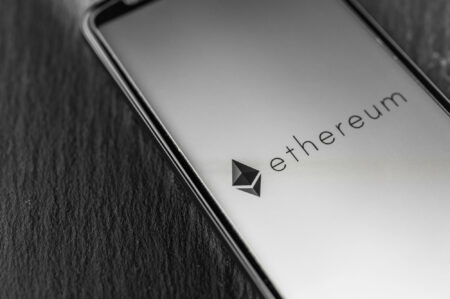What happened this week in the world of blockchain and cryptocurrencies? The most relevant local and international events, along with engaging background reports, concisely summarized in the weekly review.
Selected articles of the week:
Quantum computers perform complex calculations by exploiting the principles of quantum mechanics. This enables them to solve certain tasks such as optimization, cryptography and simulations much faster than conventional computers. According to Google, its Willow chip is able to solve complex problems in less than five minutes that would have taken a supercomputer about 10 quadrillion years. This raises questions about the security of Bitcoin and blockchain technology. However, today’s quantum computers are over a decade away from endangering the network of digital gold. Furthermore, a blockchain can always switch to quantum-resistant encryption technology. An overview of the quantum debate.
The considerable computing power of quantum computers raises questions about the security of Bitcoin and blockchain technology.
Bitcoin belongs on the balance sheet
The National Center for Public Policy Research (“NCCPR”) is a conservative US think tank. The organization focuses on free markets, environmental and regulatory policy, constitutional law, religious freedom and academic freedom. Accordingly, Bitcoin fits well into the program. With one proposal, the think tank wants to encourage tech giant Amazon to invest 5% of its balance sheet to protect the company’s assets from inflation. The think tank submitted a similar proposal to Microsoft. This was rejected last week. Nevertheless, the topic is causing a stir and, following the exponential increase in MicroStrategy, is of concern to the management of many technology companies.
Following Microsoft’s proposal, the U.S. think tank “NCPPR” approaches Amazon to suggest that it allocate part of its balance sheet to bitcoin.
Smart contracts can’t be sanctioned
The U.S. Department of the Treasury Office of Foreign Assets Control (OFAC) sanctioned a smart contract for the first time in 2022. A smart contract is a self-executing program stored on a blockchain that is designed to enforce the terms of a contract automatically and without an intermediary. Specifically, OFAC placed the crypto mixer Tornado Cash on the list of Specially Designated Nationals (SDN). The agency justified this by citing the use of Tornado Cash for laundering billions of dollars from illegal sources. This measure effectively banned U.S. persons and entities from interacting with the platform and marked a rare move against decentralized code. Recently, a U.S. court ruled that this action was unlawful, setting an important precedent for decentralized technologies.
US Court overturns OFAC sanctions on Tornado Cash’s immutable smart contracts and set a new precedent for blockchain regulation.
Switzerland is falling behind
In recent years, there has been little political progress in the area of blockchain. Despite the promising starting point created by the introduction of the DLT Act in 2021, Switzerland is at risk of falling behind. This is illustrated by the various warning letters that Swiss industry associations have had to publish in recent years. Meanwhile, more and more countries have recognized the potential of crypto assets and are pursuing ambitious strategies – with the US at the forefront. Switzerland has lost a great deal of momentum. For this reason, the industry association “Swiss Blockchain Federation”, together with the political group and two renowned blockchain experts, has organized an event for members of the Council of States and the National Council.
The Swiss Blockchain Federation provided members of the Council of States and the National Council with a hands-on introduction to the world of crypto in Bern.
NFT collection launches meme coin
In addition: The “Pudgy Penguins” are among the most successful NFT collections. The project has been able to maintain a relatively stable reserve price despite last year’s market downturn. By establishing a sustainable business model that leverages the owners’ intellectual property to sell plush toys beyond the crypto space, the penguins have given themselves a significant advantage over their competitors. Now, the team has set its sights on the lucrative but highly volatile meme coin sector to expand its crypto ecosystem beyond NFTs.
The NFT project Pudgy Penguins is set to launch its PENGU token on the Solana blockchain, expanding its ecosystem to another blockchain.









